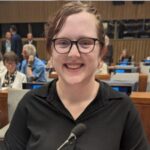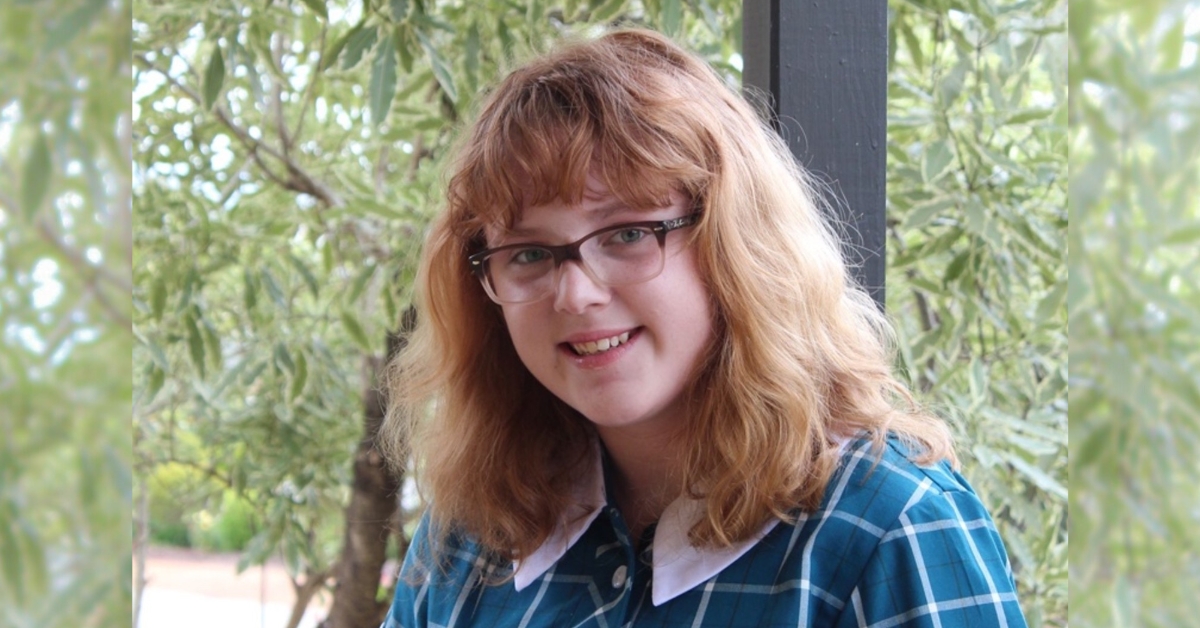Ashleigh Keating writes about her school experience and the disadvantages faced by young people with disability seeking a career in education.
In early high school, I started having seizures due to the stresses of being an autistic person in mainstream education. There were subjects I was not thriving in, and teachers who couldn’t care less about helping me. The school decided that instead of fixing their problems by supporting a disabled student, the inclusive education department should just shove me on a modified curriculum.
I was segregated from partaking in important parts of my senior education, like getting a university entrance score. I was told I could never manage university, and that I should stay away from “hard jobs” like social work because I wouldn’t be able to handle them.
Despite my active interest in things like foreign languages, theatre studies, and disability advocacy, and being the first in my school to receive work experience at Australia’s top acting school, my interests and achievements were not considered by the teachers and career advisors because of my disability.
If I had ever mentioned to those teachers at school that I wanted to achieve the things in my life that I have managed to do, like representing Australia at a United Nations conference, advocating for autistic girls like me who have been affected by discrimination in education, and going to university, they would have laughed at me.
It probably comes as no surprise that the people who were making these choices, and were supposed to be providing guidance, were not disabled, and it was clear to me that they had very little understanding of disability.
These educators would constantly make me second-guess myself and my abilities because of my diagnosis. For example, the school was against me taking a Japanese class, despite my ability to do pretty well in the subject. Looking back now, it’s pretty obvious that I was never listened to during my time at school, especially during my senior years.
Because of the lack of support from the school, my family and I had to source other options for me. We found a CIT course to become a teacher’s aide.
As this was a course about supporting people like me, I thought I would surely be supported during my time at CIT, and that I would no longer experience the same low expectations. This was not the case. Not only did the teachers pressure me to “know my limits” when it came to entering the workforce, the head of inclusive learning took the liberty to straight away tell me that a certificate IV would be too hard for me, because I was only ever on a modified curriculum in high school.
This person also heavily pushed me to do the certificate part-time because, despite my not having any other commitments, they thought I did not have it in me to take on this course in a full-time capacity.
(Spoiler alert! I completed the certificate full-time.)
This continuous experience of low expectations from the education system left me with a lasting impression about myself and my disability that I’m only now starting to address, nearly five years after leaving year 12.
If I had ever mentioned to those teachers at school that I wanted to achieve the things in my life that I have managed to do, like representing Australia at a United Nations conference, advocating for autistic girls like me who have been affected by discrimination in education, and going to university, they would have laughed at me.
Educators need to stop giving disabled students low expectations for their post-high school lives, and give us the tools to harness our interests and excel in our careers.
I’m a big believer that we need improve the quality of information available to disabled students about post-high school options. We must educate those who are supposed to be helping us in this transition, and teach them that having a disability does not mean we can’t have goals and the ability to do things that are deemed “hard,” because it may take more effort.
We can flourish in our post-school lives just as much as our non-disabled counterparts.
This blog was written as part of CYDA’s DREAM Employment Network. You can find out more about the Network here.

About the author:
Ashleigh is a university student majoring in Japanese. She is passionate about advocating for the rights of people with disabilities, especially in education.







